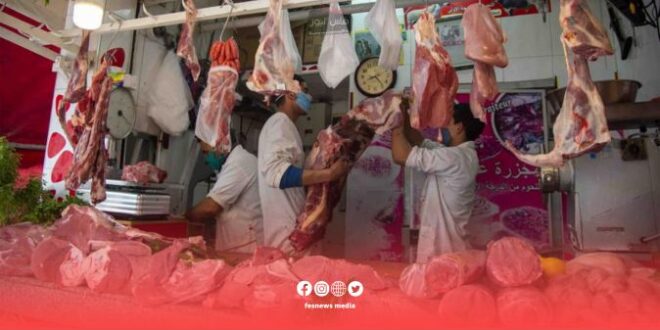Moroccan consumers have been complaining for several weeks about the high prices of red meat. What raises concerns about Eid al-Adha?
For some time now, the price of red meat has continued to rise: the price of a kilo of meat ranges between 100 and 120 dirhams. The price of beef ranges between 85 and 105 dirhams per kilo. Prices range between 100 and 120 dirhams per kilo of lamb. Increases that significantly affect the purchasing power of families. Concerns are increasing, especially in this period leading up to Eid al-Adha.
The Minister of Agriculture, Fisheries, Rural Development, Water and Forests, Mohamed Seddiqi, tried to reassure consumers by providing clarifications following the last parliamentary session, in which he identified the challenges facing the agricultural sector. In this regard, the Minister explained that “Morocco is living in a special context, characterized by an unprecedented drought that has greatly affected the agricultural sector, especially the national livestock, both in terms of number and productivity, due to reproductive imbalances.” .
Regarding red meat, Al-Siddiqi mentioned, “Notable disturbances in red meat and the reason for its high prices is due to the high costs of producing red meat due to the deterioration of pasture vegetation and the decrease in fodder production, in addition to the decrease in red meat prices,” and the rise in feed prices by 70%.
Regarding Internet users, opinions and reactions vary between those who denounce and those who mock. Some even went so far as to suggest canceling Eid al-Adha, scheduled for this year on June 17, due to inflationary pressures and the deterioration of purchasing power. Then there are those who launched a boycott campaign. They say the boycott aims “for a peaceful solution and a powerful weapon to put an end to practices that could affect the purchasing power of citizens.”
Professionals also added their voices to that of citizens. They confirm that the rise in prices was due to several factors, in particular, climate risks and high breeding costs.
According to one professional, there was a “delay in herd reconstitution during the year, resulting in a shortage of supply and a significant reduction in the number of herds and the number of cattle.” This situation led to the import of 600,000 sheep from different countries, especially Spain and Romania, to better supply the national market. He adds: “Sheep prices vary, but purchasing sheep that meet all standards of quantity and health can start from 2,500 dirhams.”
From: Fez News website
 فاس نيوز ميديا جريدة الكترونية جهوية تعنى بشؤون و أخبار جهة فاس مكناس – متجددة على مدار الساعة
فاس نيوز ميديا جريدة الكترونية جهوية تعنى بشؤون و أخبار جهة فاس مكناس – متجددة على مدار الساعة













